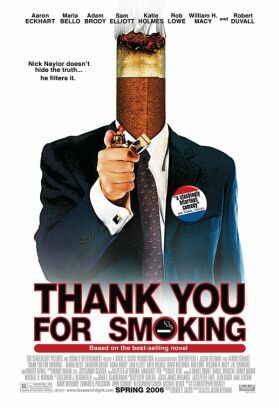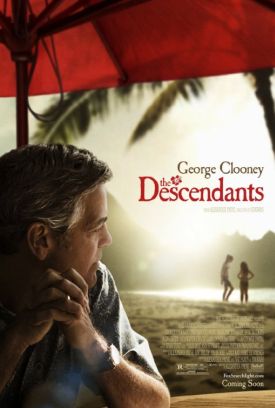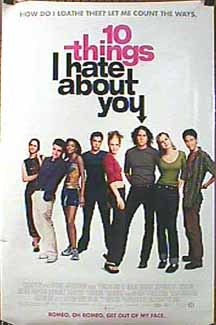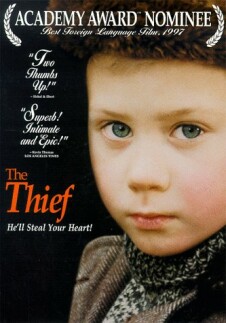Pledge, The
In The Pledge Sean Penn (director) and Jack Nicholson (star) have teamed up to give us a
portrait of the hero as “a drunk and a
clown” — which has a certain
appropriateness, I suppose. There’s
even a part for Mickey Rourke here — to
say nothing of cameo roles for such actors as Tom Noonan, Vanessa Redgrave,
Benicio del Toro, Helen Mirren, Sam Shepard and Harry Dean Stanton some of whom
are not known for being drunks and clowns. Mr. Nicholson plays Jerry Black, a
burnt-out police detective in Reno who is on the point of retirement. Beginning
to hit the bottle, he is looking forward to spending his time fishing, and his
colleagues in the department who obviously like and admire him give him a ticket
to go marlin fishing in Baja California as a retirement present.
Can you guess what’s going to
happen? Well, I’ll tell you. A big
case comes up on his last day on the job: the rape and murder of a pretty
little girl with blonde hair and blue eyes and wearing a red dress. The
(tastefully discreet) scenes of this crime are artfully if rather showily
cross-cut with scenes from Jerry’s
retirement party, in case there’s any
danger of our not getting the point. By
chance — and the cowardice of the local
sheriff’s
officer — Jerry gets the awful job of
telling the little girl’s parents. Her
mother makes him promise “by your
soul’s salvation…on this cross, made by our
daughter” that he will catch the
killer. This is the
“pledge”
of the title, which naturally spoils
Jerry’s retirement. He becomes
obsessed with catching the bad guy, even after his successor, Eric (Aaron
Eckhart), wrings a confession out of a retarded Indian (Mr del Toro) who then
proceeds to blow his own brains out.
So here are the basic elements of our story: a burnt-out cop who has seen
too much and who, haunted by his promise to a bereaved mother, comes out of
retirement to pursue the investigation on his own because everybody else
on the force believes that the case is closed, the killer captured and deceased.
Only he knows that he is on the trail of a serial killer who will likely kill
again. Oh yes, one thing more. A two-time divorcé, the cop takes in a
waitress (Robin Wright Penn), apparently a stranger to the concept of make-up
and good grooming until he comes along, who has a physically abusive ex-husband
and a pretty little daughter with blond hair and blue eyes and a red dress. . .
Does that sound like a movie plot to you? Apparently it did to Sean Penn
too.
Out of so many familiar ingredients, Penn concocts one gratifyingly original
delectation. Of course we realize that the cop, although necessarily smarter
than all the other cops in spite of his weakness for Glenfiddich sipped straight
from the bottle, must get one thing wrong. But the one thing we least expect him
to get wrong is his focusing his suspicion on an oleaginous middle-aged but
apparently celibate lay preacher and Bible-thumper (Mr Noonan) who still lives
with his mother and who befriends his
waitress’s little girl. Of
course, thinks the experienced movie-goer. It only needed this to be
completely predictable: yet another of those murdering, raping Christians that
you so often run across in the movies. But the preacher-man is not necessarily
the cliché that everything around him is.
We also have a touching scene between Jerry and the little girl as he tries
not to alarm her after she has tried to talk him into letting her go to the nice
preacher’s church:
“A lot of people believe a lot of
different things,” Jerry explains.
“Some people believe that the stories
in the Bible are true and some think they’re like your fairy
tales.” The multiple ironies of this
scene I will only hint at here by saying that the other cops are persuaded that
Jerry is a believer in fairy tales when he tells them of his suspicions. These
ironies play nicely into that hardy perennial Hollywood theme: the lonely,
half-crazed outsider — sometimes, as in
Mel Gibson’s Conspiracy Theory,
an actual lunatic — who can see farther and truer than all the wise men of
the established order.
But ultimately it is this, and not just the
film’s fondness for cinematic
clichés, that is the real problem with the movie. In this story about a
murderer of little girls, all the machinery of dramatic irony is cranked up for
the sake of — the investigating
detective! It just so happens that he hears what happens when he has only six
hours to retirement, that he is allowed to come on the initial investigation,
that he is deputed to go inform the bereaved parents, and so is led to make the
solemn promise, on his soul’s
salvation, to find the killer. Then at the
film’s climax the irony machinery is
cranked up again, all so that we should think:
“Ah, if only this
hadn’t happened or that
hadn’t happened just when and as it
did, the poor cop, branded by the world as a drunk and a clown, would have
been vindicated.
Hold on just a gol-durned minute there! While
we’re wishing for the great
might-have-been, how about maybe wishing that the murdered girls were alive
again while we’re at
it! Somehow the pathos of Jack Nicholson being down on his
uppers — bruised and bleeding and
talking to himself as he swigs from the bottle of an inferior brand of
whisky — lacks a little something in the context.
Discover more from James Bowman
Subscribe to get the latest posts to your email.







